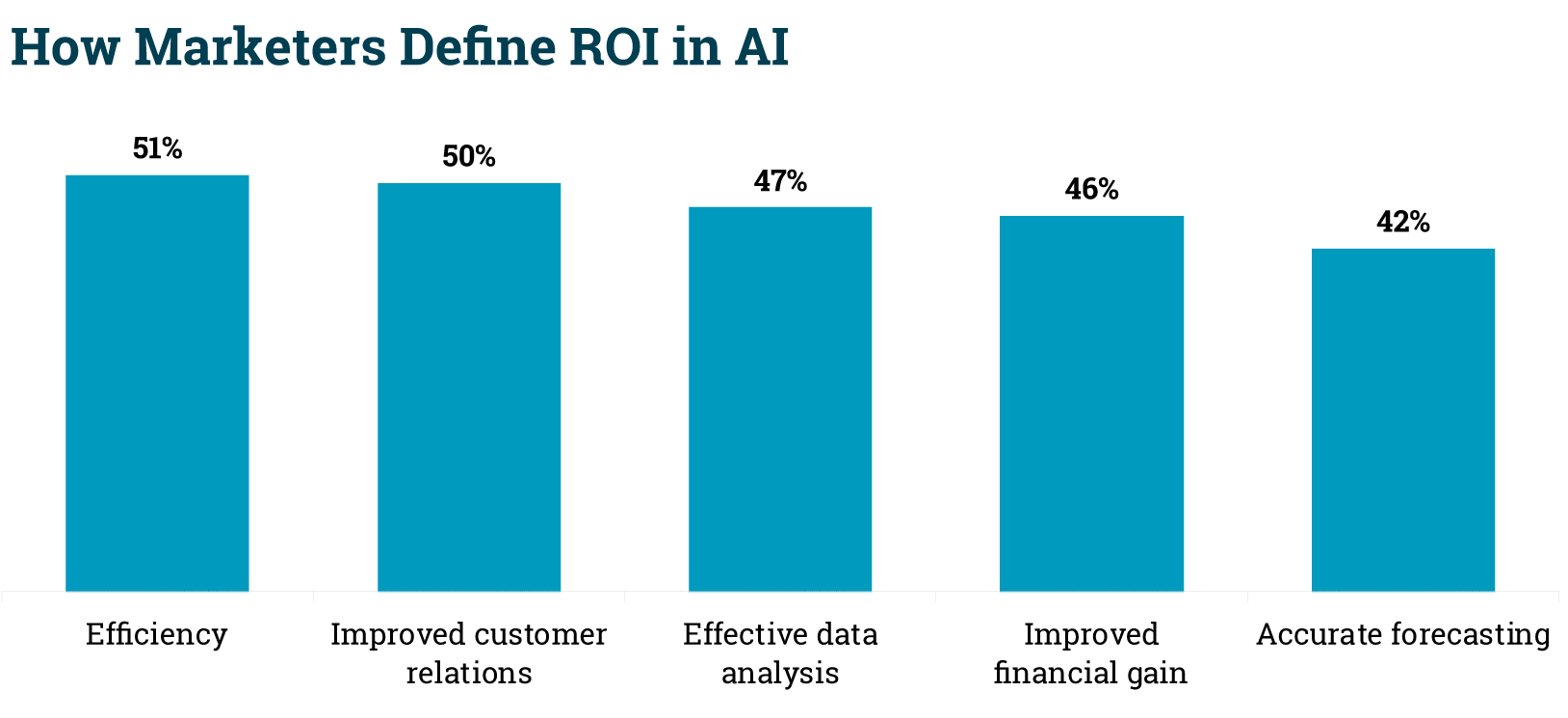Marketing’s measure of success is often boiled down to a single metric: Return on Investment (ROI). However, recent research commissioned by Iterable and conducted by Wakefield Research, and published by Ad Age, suggests a shift in how marketers perceive ROI from investments in Artificial Intelligence (AI).

Efficiency and Customer Relations: The New ROI Drivers
Unlike traditional views that align ROI directly with financial gain, today’s marketers are increasingly valuing efficiency and improved customer relations as primary indicators of ROI in AI initiatives. The study reveals that 51% of marketers define ROI through the lens of efficiency gains, underscoring AI’s role in streamlining operations and enhancing productivity. Furthermore, 50% of marketers connect ROI with the improvement of customer relationships, highlighting the potential of AI to personalize customer interactions and allow for deeper connections.
Data Analysis and Forecasting: Enhancing Decision Making
While financial gains are still significant, with 46% of marketers linking ROI to improved financial outcomes, there’s a noticeable shift towards valuing the strategic advantages of AI beyond direct monetary returns. Additionally, 42% of marketers see the value of AI in providing accurate forecasting, which can be pivotal in strategic decision-making.
Marketers’ Adoption and Attitudes Towards AI
With 91% of surveyed marketers already using AI technologies, the perception of AI as a transformative force rather than just a tool is gaining traction, yet only 37% see it as an essential skill they must master, despite widespread concern about keeping up with technological advancements.
The Future of AI in Marketing: Opportunities and Challenges
This shift in perspective is not just theoretical. Marketers report that AI contributes to better job performance and operational efficiency. Most believe AI opens doors to new positions rather than replacing jobs, with 69% viewing AI as a creator of opportunities.
The shift in ROI measurement underscores a broader transition in marketing—from a purely financial focus to a multi-dimensional strategy that includes efficiency, customer relationships, and data-driven decision-making. As AI technologies continue to advance, their role in reshaping marketing strategies and defining new success metrics will undoubtedly expand, offering both challenges and opportunities for marketers aiming to stay ahead in their fields.
About the Data: The results are based on a September 2023 survey of 1,200 marketers.
For help infusing AI into your workflows, schedule a call or email Lori Berson at lberson@BersonDeanStevens.com.
BersonDeanStevens has been a recognized brand strategy and marketing leader for over 25 years. We work in partnership with you to differentiate your brand and achieve your business goals. AI use cases and client list.
